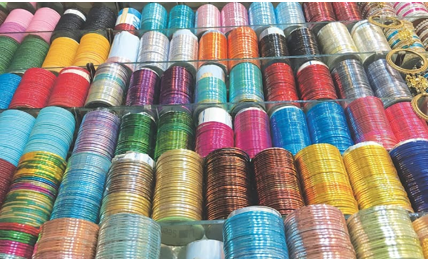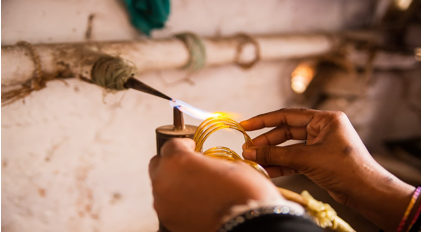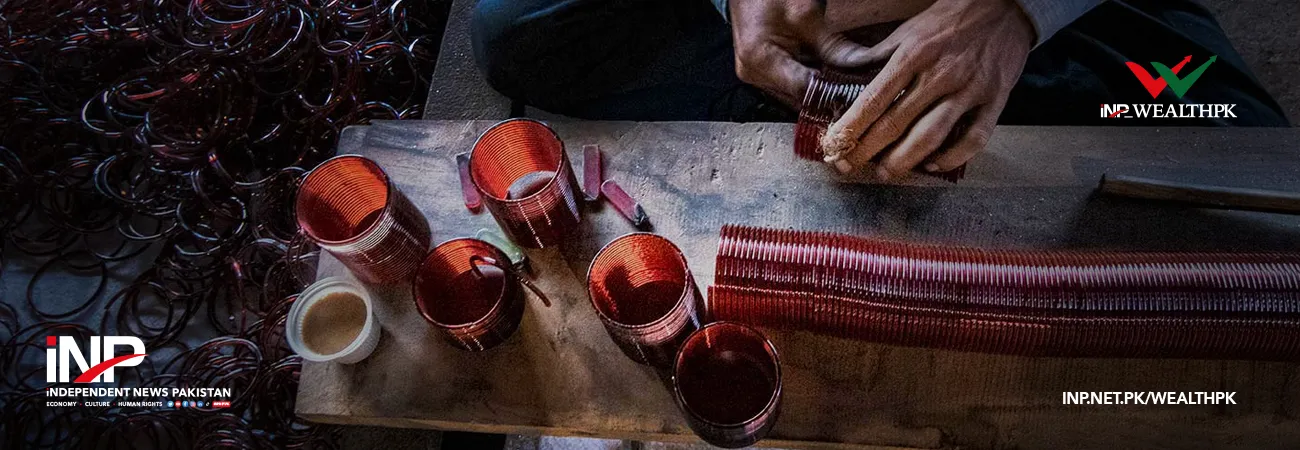INP-WealthPk
Ahmed Khan Malik
The glass bangle industry of Hyderabad, Sindh, is struggling to survive amid rising costs, falling demand, and lack of institutional support, reports WealthPK.

Facing growing financial pressures, outdated infrastructure, and fierce competition from machine-made products, thousands of artisans, most of them women, are struggling to keep the centuries-old tradition alive. Industry people urge the government to provide immediate and practical support to preserve this vital source of livelihood and heritage.

Hyderabad, often referred to as the “City of Bangles,” has long been home to Pakistan’s largest glass bangle manufacturing hub. “The decline of the glass bangle industry did not happen overnight. Over the past many years, increasing gas and electricity prices, frequent power outages, and a lack of modern technology have severely impacted production,” Sohail Rajput, a glass bangle industrialist, told WealthPK.
He said small-scale manufacturers say they cannot afford to modernize their machinery or shift to alternative energy sources. “Making glass bangles is not just a job but an art that we inherited from our ancestors. But today, we cannot even cover our basic expenses. Electricity bills, gas shortages, and lack of raw materials are killing this industry,” said Rajput.
Perhaps the most affected are the women artisans who are the backbone of this industry. Traditionally working from home, these women are engaged in cutting, designing, polishing, and packing glass bangles. For many families, this has been their sole source of income for generations. Without stable incomes and social protection, thousands of such women face growing poverty and insecurity.
“Many have urged the government to introduce support programs, including skill training, micro-financing, and health insurance for home-based workers,” Zareena Noor, Secretary, Hyderabad Women Labour Forum, told WealthPK. Rajput said the main challenge is a flood of machine-made and imported bangles that are cheaper and produced in bulk. These products dominate local markets, leaving little room for handmade bangles, which are time-consuming and more expensive to produce.
Shopkeepers also acknowledge the shift in consumer preference. “Customers want cheap, flashing bangles, and often don’t care whether they’re handmade. Unless we promote our local products, the traditional bangle makers will disappear,” said Jameel Ahmed, a retailer in Hyderabad’s famous Choori Gali. Rajput urged the Sindh government and federal authorities to take immediate action. Their demands include subsidized electricity and gas for bangle factories, creation of cooperative societies for artisans, and access to soft loans to upgrade tools and techniques.
“There should be a dedicated policy to revive the bangle industry. This is not just about the economy; it’s about cultural identity and the livelihood of thousands of women.” Despite grim circumstances, Rajput said the hope is still alive and pointed out that some youth-led initiatives have begun promoting locally made bangles through online platforms and craft exhibitions.
“If provided with proper training, financial support, and marketing avenues, artisans believe the industry can be revived. We don’t want charity. We want investment, education, and support so we can compete and continue our work with pride,” he added.
Credit: INP-WealthPk









